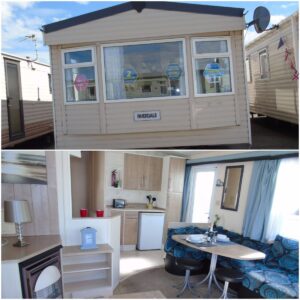2024 is a record breaker for flatfair’s No Deposit

Deposit alternative specialists, flatfair, enjoyed a year of substantial growth in 2024.
They saw their No Deposit tenancies increase by 26% year-on-year and welcomed more letting agents and Build To Rent operators than ever before.
It’s been a year of swings and roundabouts for the lettings sector – while Build To Rent has enjoyed the expansion many predicted, the private rented sector has seen more landlord departures, increased regulation and faces the prospect of tougher energy efficiency standards which are set to cost billions.
Rental prices rose 13.2% over the last 12 months which inevitably meant an increase in the cost of traditional deposits. When combined with the lingering effects of the cost-of-living crisis, this resulted in more hard-pressed tenants looking to save money on their upfront move-in costs.
Gary Wright, CEO at flatfair, said: “Average traditional deposits have risen to £1580 which is quite an eye watering amount, especially when considering tenants must also pay their first month’s rent upfront.”
“Our deposit alternative, however, has saved tenants an average of £1291 on their upfront move-in costs.
“Which is why in 2024, 52% of tenants chose No Deposit over a traditional deposit when presented with the two options side by side.
“In total, we saved tenants £16.4 million throughout the year – money which is better spent making their house a home, at a time when they most need it.”
Landlords are under pressure
Landlords have also come under financial pressure throughout the year.
The Renters’ Rights Bill is still making its way through Parliament, and will bring additional regulatory and compliance measures when it becomes law next Spring. Government proposals to introduce a new minimum energy efficiency standard for all PRS properties by 2030 has prompted some landlords to leave the sector altogether.
Homes in the PRS must achieve a rating of EPC ‘C’ by the end of the decade.
Wright said: “There is no doubt that landlords are under pressure and the cost of meeting the new energy efficiency standards is estimated at between £20bn and £25bn across England, Wales and Scotland.
“What they are looking for is security and a reason to be optimistic – especially since the Renters’ Rights Bill is set to abolish Section 21 evictions and assured shorthold tenancy agreements when it comes into force next year.
“More landlords turned to No Deposit than ever before this year and that’s because we provide them with market-leading protection on their property of up to 10 weeks for damages and/or rent arrears – double the amount possible with a traditional deposit and it doesn’t cost them anything at all.
“Even agents benefit because our deposit platform is slicker, more efficient and reduces the potential of human errors in the deposit process – leaving them more time to concentrate on other tasks which are going to drive revenue for their business.”
Over the last 12 months, flatfair has welcomed a record number of new partners including many of the country’s leading agencies and Build To Rent providers including: Andrews Property Group, Dandara Living, Reed Residential, The Property Centre, Turay Homes and urbanbubble.
Bring transformative change
“Looking back, 2024 has been a very satisfying year,” said Wright.
“But there will be more challenges and opportunities coming along in 2025.”
“The Renters’ Rights Bill will bring transformative change and I can see more landlords opting to use agents for a fully managed service.
“We may well see more landlords choosing to exit the sector because of the additional compliance burden – fewer rental properties therefore means rental prices are likely to go on increasing which, in turn, will lead to rising traditional deposits.
“That means tenants will be more likely to source deposit alternatives, like flatfair No Deposit, so we’ll be aiming to surpass our success in 2024 as we head into the New Year.






